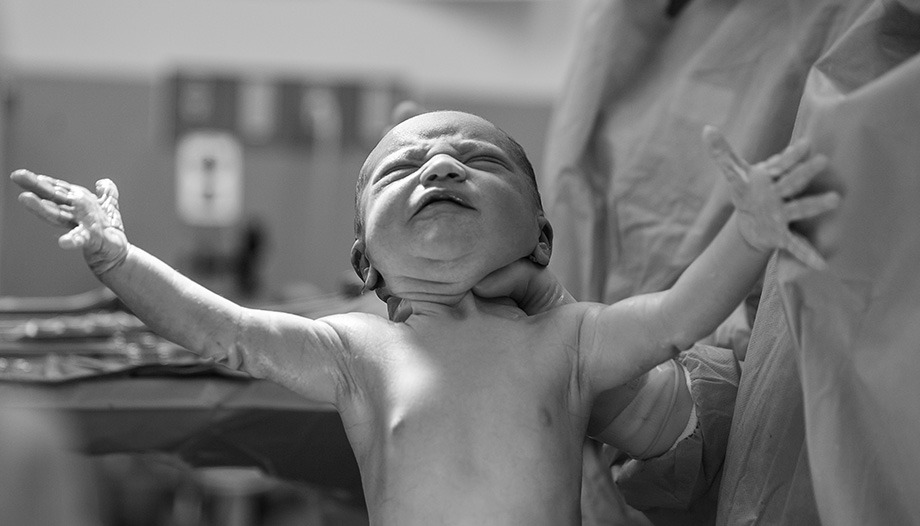March 25 is the commemoration of the Day for Life. From the Diocesan Commission of Integral Ecology of Madrid, It seems to us a good time to remember the sacred value of all life.
We find it paradoxical that it is necessary to dedicate a day to remember a right that is the basis of all other rights: without the right to life, there is no other right.
As happens in similar celebrations, March 25 gives us the opportunity to remember the importance of what we are celebrating and to vindicate what still remains to be achieved.
Throughout history, rights have been achieved gradually: first came the abolition of slavery, then the legal independence of women, then civil rights for marginalized populations, people of other races or religions.
Unfortunately, not in all countries is this extension of the moral frontier ensured, not in all countries is there equality before the law with respect to minority groups, not in all countries do women have the same opportunities as men, and in many countries the most basic human rights continue to be disregarded.
It is also sad to recall that in most of the countries we consider socially advanced, not all human beings are still guaranteed the right to life, which is both shocking and surprising, almost inconceivable.
Modern science knows enough about the early stages of embryonic development to affirm, without any doubt, that once fertilization has taken place, the resulting being has a genuinely human genetic load, different from that of its biological parents, and perfectly autonomous, in the sense that it does not need something external to complete it, only to nourish it.
Between the fertilization and birth nothing biologically relevant occurs to establish a before and after in the process of "humanization" of that gestating embryo.
On the other hand, the dependence of that child cannot justify deciding about them at will: after all, they will also be dependent on their mother many days after birth.
Discussing the viability of a human embryo, when intrauterine treatments and operations are now being performed, does not contribute anything to the substance of the discussion either; moreover, it seems that the discussion is no longer even necessary, since some consider the debate closed.
The vast majority of citizens of Western countries assume as morally acceptable the abortionThe elimination of a human being in gestation, whose right to life is placed below other rights that are presented as conflicting: necessity, autonomy, immaturity or carelessness are considered sufficient reasons to end the life of someone who a few months later will be a human being like any of us.
Certainly, the economic difficulties, the youth of the pregnant women and the situations of violence that sometimes occur around a pregnancy must be taken into account. In this sense, the aim is not so much to prosecute as to protect those who are most vulnerable.
The pro-life movements not only denounce, but also get involved, to support -economically and psychologically- those who go through difficult situations. Seeing now the photos of 14 or 15 year olds who, without this support, would have been aborted, who would not exist, is an incontestable human argument to continue defending the life of the human being in gestation.
– Supernatural ecology is the science of life, of the relationships of dependence between living beings, of biodiverse systems, where everyone receives something and puts something in, where there should be no exclusions. Children in gestation do not yet seem to be part of the moral community that guarantees their continuity: everything is left to the parents' criteria.
But a human life, every life, cannot be an instrument for anything else, it has an inviolable dignity, it must be protected, precisely because it is the most vulnerable.
Integral ecology cannot look the other way when it comes to defending human life in all its ages, in all its conditions: there are no worthy and unworthy lives, it is not up to us to judge that; only to accept them with the welcome of those who receive a weak being and decide to take care of him.
Breaking the chain of life will have serious social and environmental consequences for our civilization.
As Pope Francis reminds us: "When the value of a poor person, of a human embryo, of a person with a disability - to give just a few examples - is not recognized in reality itself, it is difficult to hear the cries of nature itself. Everything is connected" (LS, n. 117). To respect life is to respect it in all its forms; it would make no sense to do so for the lives of other species, disregarding our own.
The logic of care is the same in one case and in the other, as well as the logic of contempt: "if you think abortion, euthanasia and the death penalty are acceptable, it will be difficult for your heart to care about the pollution of rivers and the destruction of the rainforest. And the reverse is also true. So, even if people continue to vehemently maintain that these are problems of a different moral order, as long as they insist that abortion is justified, but desertification is not, or that euthanasia is wrong, but river pollution is the price of economic progress, we will remain stuck in the same lack of integrity that got us where we are" (Pope Francis, Let Us Dream Together: The Road to a Better Future World, 2020, 37).
Madrid Diocesan Commission of Integral Ecology








